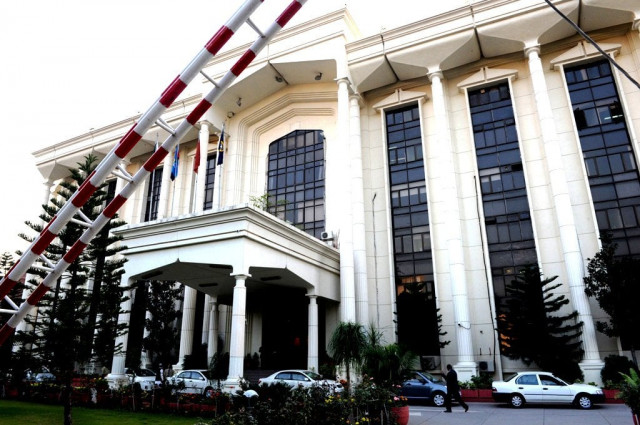Sindh claims FBR arbitrarily deducted Rs9.8 billion
CM to write to PM for refund of amount deducted in name of withholding, sales tax

PHOTO: AFP
The CM said this while presiding over a meeting to review the at-source deduction by the FBR at the CM House on Monday. The meeting was attended by the Sindh minister for excise and taxation and senior Finance Department officers.
Shah, who also holds the portfolio of finance, said in 2012-13, Rs633.119 million was ‘unconstitutionally’ deducted by the FBR from the PCF in respect of withholding tax.
“In 2015-16, Rs6,127.115 million was deducted while in 2016-17 another Rs294.5 million was deducted. This way, during the last three financial years, Rs7,054.734 million has been taken away from Sindh,” he claimed.
The CM said he was told by his finance team that the FBR had also deducted various other amounts from the PCF, in respect of claims over different departments of Sindh government with respect to sales tax.
Sindh CM orders recovery of Rs6b deducted by FBR
The FBR, during the year 2014-15, deducted at-source Rs816.267 million from Excise Department, Rs11.878 million from Board of Revenue, Rs6.662 million from Mines and Mineral Development Department and Rs1.704 million from Transport & Mass Transit Department. The total deduction was Rs881.513 million.
In 2015-16, the FBR deducted Rs6,127.116 million from Excise & Taxation Department, Rs1.7million from Information Department, Rs11.878 million from P&D, Rs7.229 million from Board of Revenue, Rs59.069 million from Mines and Mineral Development Department, Rs122.324 million from Prisons and Rs87.750 million from Education Department. The total deductions in 2015-16 stood at Rs6,417.076 million.
In 2016-17, the FBR deducted Rs76.870 million from Excise Department, Rs11.119 from Health Department, 290.499 million from Home Department, Rs415.891 million from Finance Department, Rs12.834 million from Board of Revenue and Rs9.821 million from Mines and Mineral Development Department. The total deductions of that year amounted to Rs401.560 million.
“In all these years, the FBR deprived Sindh of Rs9.831 billion,” he added.
Quoting Article 119 of the Constitution, Shah said custody of the PCF and the authority to withdraw money from it rested with the provincial government. “Any arbitrary withdrawal of money from the PCF by the FBR is a clear violation of the Constitution,” he said.
FBR retracts money laundering claim against 2,785 people
“Article 121(d) of the Constitution specifies that the expenditure can only be made from the PCF for any sum required to satisfy any judgment, decree or award against the province by any court or tribunal,” he added.
The chief minister said since the deductions were made on executive orders from the FBR functionaries, such order cannot be treated as authorised under the Constitution. He expressed satisfaction, however, that the State Bank of Pakistan in its letter of April 3, 2017 took up the issue with the FBR authorities.
He said the Sindh government had also raised the matter with the Council of Common Interest (CCI) with the contention that the FBR authorities had illegally drawn the money from the PCF in contravention of the Constitution.
Shah also decided to write a letter to the prime minister with a request to direct the Ministry of Finance to refund Rs7.054 billion to the Sindh government with respect to withholding tax which has been unconstitutionally deducted by FBR from the PCF.
“From 2014-15 to 2017-18 the FBR has overall deducted Rs9.831 billion. The amount must be refunded to the Sindh government,” he said.



















COMMENTS
Comments are moderated and generally will be posted if they are on-topic and not abusive.
For more information, please see our Comments FAQ